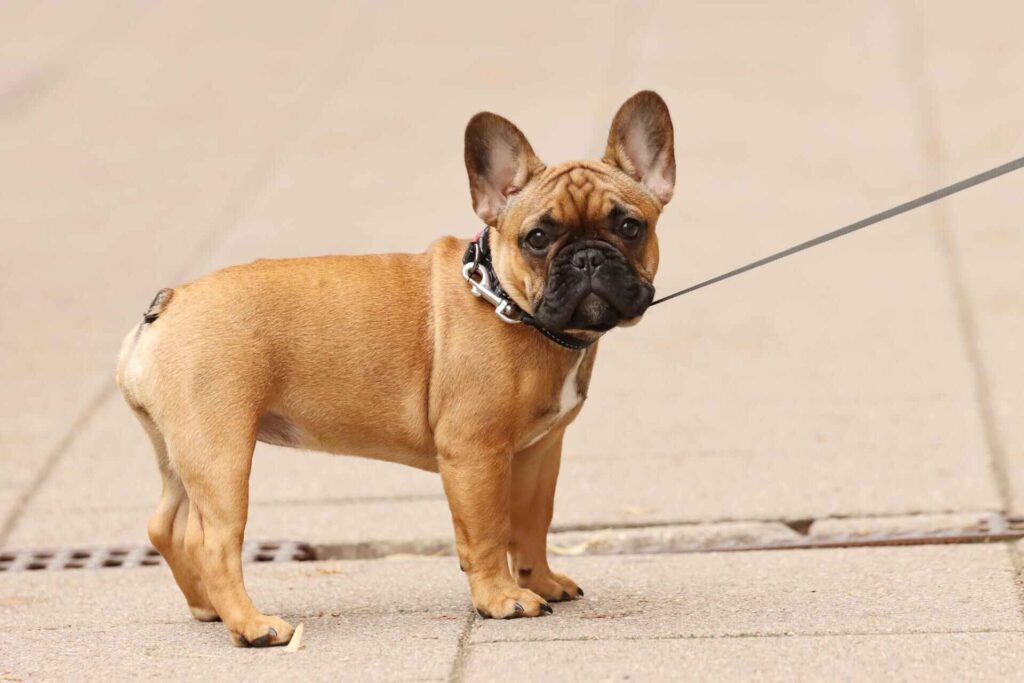A French Bulldog Puppy is among the most adored small dog breeds, loved for its playful personality, expressive eyes, and signature bat-like ears. French Bulldog puppies are small in size but big in personality—full of charm, affection, and a playful spirit that makes them wonderful companions for both families and individuals.
Why French Bulldogs Are So Popular
Frenchies are adaptable, require minimal exercise compared to high-energy breeds, and thrive in apartments or small homes. Their affectionate nature makes them great lap dogs, while their silly antics keep families entertained.
Common Colors and Varieties
French Bulldog puppies come in a range of colors that add to their uniqueness. You’ll often see a black French Bulldog puppy, white French Bulldog puppy, gray French Bulldog puppy, or the rare blue fawn French Bulldog. There are also striking combinations like a blue and tan French Bulldog, a black and white French Bulldog puppy, or even the ever-cute white Frenchie puppy. Each one has its own charm, but all share the same adorable personality.
Growth Stages of a French Bulldog Puppy
For instance, understanding the growth stages of a French Bulldog puppy helps you track their development, from a tiny newborn to a playful, full-grown companion.
Newborn Stage (0–2 weeks)
At birth, French Bulldog puppies are fragile, tiny, and completely dependent on their mother. Their eyes and ears remain closed during this stage. They spend most of their time nursing and sleeping, developing strength to move into the next phase.
Early Socialization Stage (2–8 weeks)
By 2 weeks, puppies begin opening their eyes and ears. Between 3–8 weeks, puppies begin discovering the world around them, tumbling into play with their littermates, and picking up the first lessons of social bonding. Breeders usually start the first rounds of vaccinations around this time.
Puppy Development Stage (2–6 months)
This stage is critical for training and bonding. French Bulldog puppies develop rapidly, learning to walk confidently, interact with people, and respond to basic commands. This is also when potty training begins.
Adolescence Stage (6–12 months)
Just like teenagers, adolescent Frenchies may test boundaries. They still require consistency in training and proper nutrition. Growth slows down, but they gain muscle and develop their adult look.
Young Adult Stage (1–2 years)
By one year, most French Bulldogs are close to their adult weight and size, though they may fill out until about two years old. Their personality is well-formed, and they’re typically calmer than in their early puppy months.
Average Size and Weight of a French Bulldog Puppy
Male vs Female Growth Differences
Male French Bulldog puppies typically grow a bit larger than their female counterparts, though the difference is not dramatic. On average, males reach 20–28 pounds as adults, while females usually range between 16–24 pounds, giving both a sturdy yet compact build.
Healthy Growth Chart by Age
- 8 weeks: 5–7 lbs
- 3 months: 10–14 lbs
- 6 months: 15–20 lbs
- 1 year: 16–28 lbs (depending on gender and genetics)
Nutrition for a Growing French Bulldog Puppy
Proper nutrition is the foundation of a healthy, happy French Bulldog Puppy. Feeding them the right balance of nutrients supports growth, energy, and overall development.
Why Choosing the Right Food Matters
Nutrition impacts everything—from your French Bulldog Puppy’s growth and energy to their long-term immunity. Since Frenchies are prone to sensitive stomachs, choosing high-quality food is essential for their health and comfort.
Royal Canin French Bulldog Puppy Food – A Recommended Option
Many owners prefer Royal Canin French Bulldog Puppy formula since it’s tailored for their short muzzles and sensitive digestion. The kibble shape makes chewing easier, reducing choking risks.
Feeding Schedule and Portions
- 8–12 weeks: 4 meals a day
- 3–6 months: 3 meals a day
- 6+ months: 2 meals a day
Always measure portions to prevent overeating since Frenchies are prone to obesity.
Exercise and Activity Needs
Small dogs may be tiny in size, but they still need regular exercise and play to stay healthy, happy, and well-behaved.
French Bulldog Puppy Exercise Needs
Safe Activities for Small Breeds
Puzzle toys, light tug-of-war, and short sessions of indoor fetch are excellent ways to keep your French Bulldog mentally and physically engaged. Therefore, these gentle activities provide just enough exercise without straining their compact bodies. In addition, be sure to avoid excessive jumping, as it can put unnecessary stress on their developing joints.
French Bulldog Puppy Health Issues
French Bulldog puppies are adorable, but they’re also prone to certain health issues that owners should watch for early on.
Breathing Problems (Brachycephalic Issues)
Due to their short noses, French Bulldog puppies often struggle with breathing, especially in hot or humid weather. It’s important to keep them cool, limit outdoor activity during peak heat, and always provide fresh water. Taking these precautions helps prevent overheating and keeps your puppy safe and comfortable.
Skin Allergies and Sensitive Coat
Joint and Bone Development Concerns
Hip dysplasia and patellar luxation (slipping kneecap) are common health concerns in French Bulldogs. These conditions can cause pain and limit movement if not managed properly. Keeping your dog at a healthy weight helps reduce the risk and supports joint health.
Preventive Care for a French Bulldog Puppy
Caring early for your French Bulldog puppy helps prevent future health issues.
Vaccinations and Vet Checkups
Parasite Prevention (Fleas, Ticks, Worms)
French Bulldog Puppy Training & Behavior
Training and behavior development shape your French Bulldog puppy into a well-mannered and happy companion.
French Bulldog Puppy Potty Training
French Bulldogs can be a bit stubborn when it comes to training, so staying consistent is very important. Using crate training can make the process easier and often helps speed up their learning.
Socialization with People and Pets
Common Behavior Challenges
Chewing, nipping, and occasional barking are normal behaviors in puppies as they explore their world. Gently redirect them with toys and reward calm actions to encourage good habits.
Grooming and Daily Care
Cleaning Wrinkles and Folds
Moisture buildup in your French Bulldog’s face folds can lead to irritation and infections. Gently wiping the folds daily with a soft cloth helps keep them clean and healthy.
Bathing and Brushing Routine
Dental and Nail Care
Signs of a Healthy French Bulldog Puppy
A healthy French Bulldog puppy shows clear signs of good growth, energy, and well-being.
Physical Appearance and Coat
A shiny coat, clear bright eyes, and clean ears are strong signs of good health in your puppy. These features show they are well cared for and free from common issues.
Energy Levels and Playfulness
When to See a Vet Immediately
Red Flags in Puppy Health
- Difficulty breathing
- Persistent vomiting or diarrhea
- Seizures
Emergency Symptoms
Blue gums, sudden collapse, or signs of overheating are serious warnings. These conditions need immediate veterinary care to protect your dog’s life.
French Bulldog Puppy Lifespan and Long-Term Care Outlook
Transitioning from Puppy to Adult Dog
As French Bulldogs grow older, their exercise routines and nutrition needs naturally change. In addition, owners should slowly adjust feeding portions to match their energy levels and body condition. Around 12 months of age, it’s best to transition them from puppy food to a balanced adult dog diet.
Setting Up a Healthy Lifestyle
Balanced nutrition, regular exercise, and preventive care play a big role in keeping French Bulldog puppies healthy. In other words, with proper attention, most can enjoy a happy lifespan of 10–12 years.
Conclusion
Raising a French Bulldog puppy is a rewarding journey filled with laughter, cuddles, and unique challenges. From monitoring growth stages to ensuring proper nutrition and healthcare, each step shapes your Frenchie into a healthy adult dog. With the right love and care, whether your Frenchie is a black and white puppy, a blue fawn beauty, or a snowy white bundle of joy, your little companion can grow healthy, happy, and stay by your side for many years of cuddles and unconditional love.
FAQs
1: How big will my French Bulldog puppy get?
Most French Bulldogs reach 16–28 pounds as adults, with males usually larger than females.
2: What food is best for a French Bulldog puppy?
High-quality food like Royal Canin French Bulldog Puppy is recommended since it’s designed for their unique build and digestion.
3: How often does my little pup really need a vet visit?
Every 3–4 weeks during the first few months, then twice a year for checkups.
4: Do French Bulldog puppies need a lot of exercise?
No, 20–30 minutes of light daily activity is enough. Avoid strenuous exercise due to breathing concerns.
5: At what age does a French Bulldog stop growing?
They typically reach full size around 12 months but may fill out until 2 years old.


